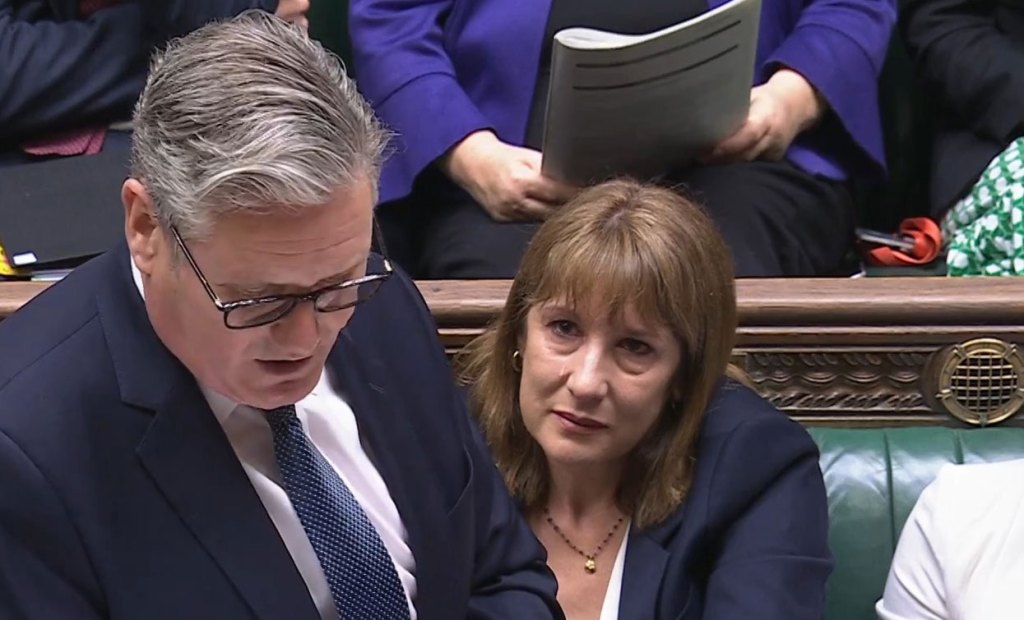Is Labour really going to help get 80,000 people on the housing ladder over the next five years under its Freedom to Buy scheme, as it is claiming this morning? Given the rather light ambition of this target, I would say it probably has a chance of hitting that target, although it won’t transform the life-chances of young people.
According to the ONS, 51.4 per cent of 20 to 24-year-olds were still living with their parents, along with 26.7 per cent of 25 to 29-year-olds. That is several million people who in past generations might have been expected to be making their own way in the world – indeed, the figures above have grown substantially over the past decade: in 2011, 44.5 per cent of 20 to 24-year-olds and 20.1 per cent of 25 to 29-year-olds were living with their parents. As for those who have managed to move out of the parental home, many are renting rather than buying. In 2022, 39.1 per cent of 25 to 35-year-olds owned their home, down from 56.5 per cent two decades earlier.
To promise to create an extra 80,000 homeowners, then, would not reverse the long-term decline in home-ownership among young people. Moreover, the way Labour is promising to do it may merely make things worse in the longer run. Labour’s Freedom to Buy scheme is really just a reheated version of the current government’s Mortgage Guarantee Scheme, which itself is just a rehashed form of the mortgage guarantee element of George Osborne’s Help to Buy scheme. The purpose of each of these has been to underwrite high loan-to-value mortgages so that the banks feel more confident about advancing these loans, thus enabling first-time buyers to buy property without having to wait in order to amass a huge deposit.
But there is a reason why banks have become shy of offering 90 or 95 per cent mortgages – they burned their fingers on them in the past. Immediately prior to the 2008/09 financial crisis, Northern Rock was even offering a 125 per cent mortgage – and we know how that ended. The problem with 90 or 95 per cent home loans is that it doesn’t take much of a fall in house prices to leave buyers in negative equity – and banks with loans on their books which are no longer fully secured by assets. The collapse of the US housing market in 2008 was enough to destabilise much of the financial system, so much so that after the crash there was serious consideration in government circles as to whether high loan-to-value mortgages should be banned. Gordon Brown decided against it, and then George Osborne came up with an alternative idea: let’s encourage these loans by having the taxpayer take on the banks’ risk instead. As for homebuyers, they remain at risk of negative equity, whoever is bearing the risk of them defaulting on their debt.
On its own, mortgage guarantee schemes do little to solve the housing problem because they are merely helping to boost demand. If the supply of housing remains tight, they run the risk of inflating prices further, making life even more difficult for the next generation of homebuyers. Look at what has happened since Osborne introduced Help to Buy in 2013: the rate of housebuilding rose slowly after 2013 but has never matched government ambitions for long. Last year, 149,000 new homes were built in England – just half the 300,000 which Boris Johnson’s government had promised – before Rishi Sunak abandoned the target. Given that net migration has hit record highs over the past couple of years, you can see the problem.
What is Labour going to do to boost housebuilding? It is talking about building on ‘greyfield’ land, by which it seems to mean abandoned car parks in the green belt. I don’t know how many abandoned car parks there are around the M25, but I would guess not enough to house Britain’s growing constituency of frustrated would-be homebuyers. And even if there were, it would not solve the problem of rising construction costs, a lack of construction workers – many of whom Labour might well find are diverted onto its programme to insulate existing homes. Without resolving the fundamental shortage of supply, Freedom to Buy merely risks stoking house price inflation further.








Comments